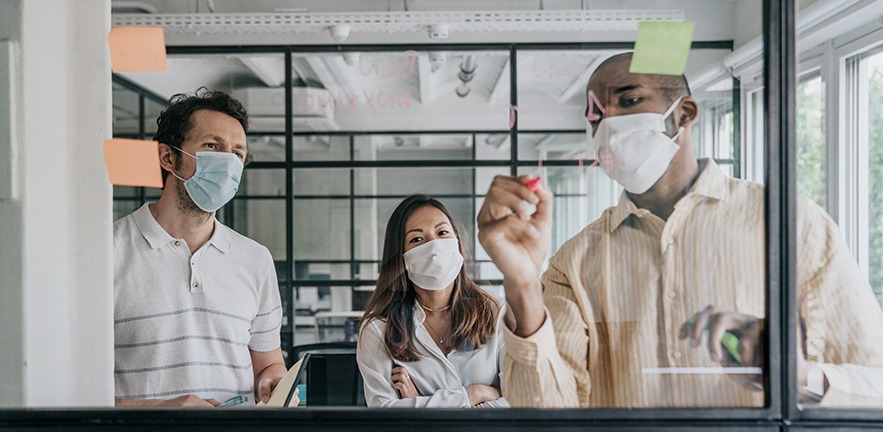Each of our research centres has unique ways to engage with non-academic organisations and, through that, to generate real world impact. This month we decided to share with you the work of the Centre for Risk Studies at Cambridge Judge Business School.
The Centre for Risk Studies (CRS) has supported many businesses and policymakers through the production of up-to-date risk scenarios and the timely sharing of the latest research findings to inform their risk management approach.
Producing relevant research on key economic and social risks
The Centre for Risk Studies conducts multidisciplinary research on the management of economic and societal risks. Researchers at the Centre analyse key emerging and systemic risks, assess their probability and severity and model how different risks might unfold, so practitioners can prepare for and manage them. The areas of research are as varied as the sources of key systemic risks: from COVID-19 (coronavirus) to cybersecurity, from climate change to risks connected to critical national infrastructure.
The distinguishing feature of the Centre has been the usage and modelling of scenarios. These are used to assess the severity and likelihood of risks, their sensitivity to major variables, and uncertainty distributions in scenario variants. For example, the CRS regularly develops data schema to support insurance and investment managers to understand the likely impact of various scenarios on their portfolios, and plan accordingly.
The other key output of the Centre’s research is the Cambridge Global Risk Index. The Index compiles the impacts of 22 types of threats into a single, annual measurement of economic loss. As such, it provides firms and policy makers with a toolkit for assessing the international risk of business disruption.
Ensuring research reaches businesses when it matters
A cornerstone of the Centre’s impact and engagement is the maintenance of a constant dialogue with affiliated businesses and partners, as well as with anyone interested in learning more about their work. While the research on risks and their mitigation is conducted with academic rigour, its intended audience are practitioners and the Centre is very proactive in timely diffusing new knowledge through various means.
In the past couple of years, the CRS published over 10 reports on risk-related topics as varied as cyber-risk, scenario analysis, risk management and the taxonomy of business risks. Additionally, it frequently posted videos and “Risk alert blogs” on topics of immediate interest for businesses, and organised public engagement events in Cambridge, London and, recently, online. As the COVID-19 pandemic hit, the Centre remained connected to its partners and attracted the attention of new stakeholders through six webinars related to the pandemic and several blog posts helping practitioners to make sense of what was happening and plan for what was likely to come next.
A key tool of constant communication with the users of data and models has been the Cambridge Business Risk Hub. This is a platform where partners can find a repository of all the scenarios and publications the Centre produces, support on how to manage the risks identified and on how to translate insights into company-specific risk matrixes, as well as video interviews to risk experts and the latest updates on new emerging risks. In 2020, the CRS added to the hub a COVID-19 Business Risk Analysis Platform.
For a wider audience, the Centre runs a flagship event every year – the Risk Summit. This brings together multinational corporations, senior decision makers from both industry and government and researchers from different disciplines to explore the current pressing issues in risk management. The discussions and topics that emerge during the Summit shape the research agenda of the CRS thus closing the positive feedback loop between practitioners and researchers.
Generating impact through supporting businesses and public authorities
The validity and relevance of the work conducted at the CRS keeps being testified by the contracts it signs every year with large corporations from sectors as varied as insurance, banking, management consulting, retail, and energy. Companies keep working with the Centre because it provides an independent opinion on the various risks that they face and, through its scenarios, helps them to explore new risks as well as how different risks might compound. Businesses appreciate the robustness and multidisciplinarity underpinning the scenarios, and, most importantly, the methodology of the Centre, which helps them to quantify the consequences of the risks analysed.
The Cambridge Global Risk Index has been used for city planning activities in UK cities, has supported many insurance companies in better assessing the key risks in different geographies and, most importantly, contributed to make the UK the first country where the government set up a cover for losses incurred due to cyber-disruption.


